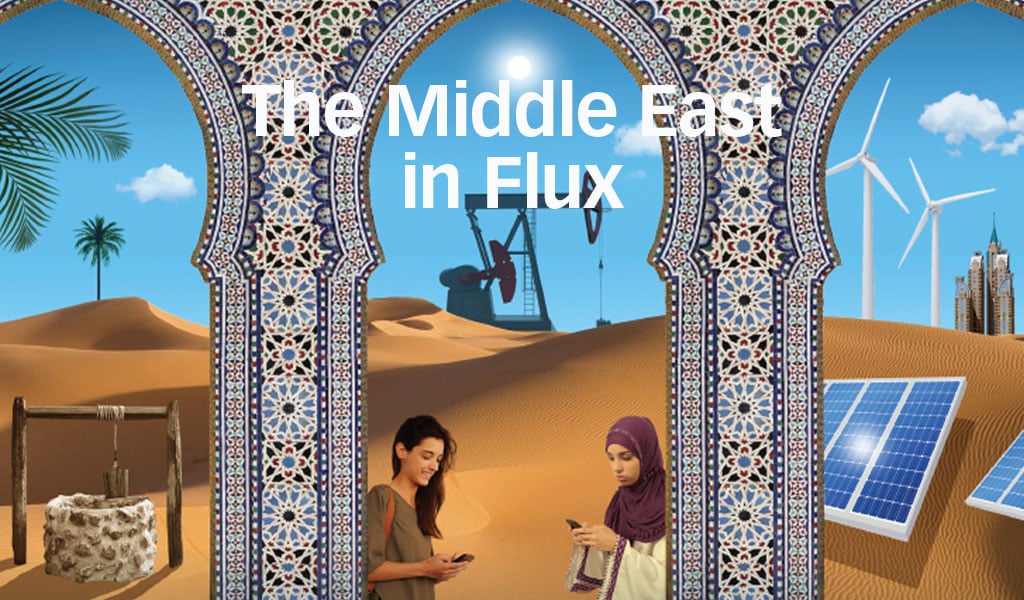This issue of F&D focuses on the Middle East and North Africa. We take stock of the region’s rapid transformation since the uprisings of 2011—a period that raised the hopes of millions for a better future, and caused despair for millions of others.
The iron lid that had kept Arab societies artificially stable was lifted by the uprisings, writes Marwan Muasher of the Carnegie Endowment for Peace. Now, the only path to stability and prosperity is through building better institutions, sharing power, and implementing policies that will foster inclusive growth—a process that will require a new social contract between governments and society.
While political demands drove the uprisings, unresolved socioeconomic issues were the underlying cause, says Jihad Azour, the IMF’s Director for the Middle East and Central Asia. Seven years later, these problems remain largely unaddressed. With 60 percent of the region’s population under the age of 30, countries need more jobs and better opportunities to secure future stability. But that requires decisive action on many fronts.
Conflicts in the region have claimed an estimated half million lives since 2011 and displaced masses of others, leaving human and economic ruin in their wake, write IMF economists Phil de Imus, Gaëlle Pierre, and Björn Rother. In Syria, for instance, GDP today is estimated to be less than half its 2010 level.
And yet, the region offers so much potential. Technology, including green energy, holds out the promise of meaningful jobs for young people. Solar power and other renewable energies give countries the opportunity to offset the risk of stranded oil and gas assets, according to the World Bank’s Rabah Arezki. And across the region, governments are launching tech funds, with some start-ups developing into large employers. Another source of growth is women, whose power to boost GDP is just beginning to be understood. Personal stories from the region, recounted by Nazila Fathi, give us a window into the challenges many women face when looking for jobs outside the home.
In sum, there has never been a more critical time to focus on the region’s untapped potential: its youth, its women, and its entrepreneurial spirit. The price of inaction is simply too high.
To focus attention on the urgent need for new policies, the IMF is co-hosting a high-level conference in Marrakesh, Morocco on January 29-30, with the Arab Monetary Fund, Arab Fund for Social and Economic Development, and the government of Morocco. The conference aims to decisively move the needle on inclusive growth in the Arab world—from endorsing the concept to enacting policies that will make it happen.
In this video, we hear about what it’s like to be young in today’s Casablanca, as we follow the personal journey of Hamza Rashih, a young man trying to set up his own pastry shop. It is through the reshaping of individual lives that the Middle East and North Africa will reshape its future.




